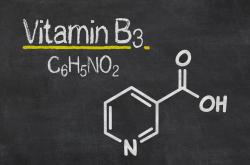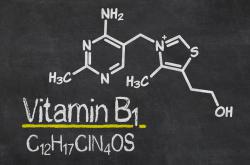Vitamin E Deficiency, Cellular Damage, and Fatigue
Vitamin E have a tremendous role to play in the body’s energy levels. Learn the signs of low levels of vitamin E and how to correctly supplement this important vitamin (including potential interactions and side effects).
Vitamin E has long been recommended as an energy-booster. The problem with that fact is that most people who have accepted that recommendation have never really understood exactly why the vitamin is so important in the first place. They hear words like “antioxidant” and “free radicals” but no one ever really explains why any of that is important.
What is Vitamin E and How Does it Benefit You?
Many people are deficient in vitamin E and don’t even know it. This vitamin is fat-soluble, and is perhaps best known as an antioxidant and an energy booster. It safeguards cellular membranes, protecting them from free radical damage. It also helps to prevent LDL cholesterol from being oxidized. Without it, the body would have trouble maintaining its smooth muscle and forming red blood cells. It is also vital for regulating vitamin A and K stores, as well as iron and trace minerals. Beyond that, it provides immune system benefits that can improve health in a variety of areas.
Any lowering of normal vitamin E levels can directly impact the muscles due to a loss of antioxidant protection. Since vitamin E has been determined to be an antioxidant that prevents oxidative damage to muscles during normal contractions, it only makes sense that a lowering of those vitamin levels would remove that protection. This leaves the patient vulnerable to muscle fatigue far in excess of what he would endure were his vitamin E levels in the normal range.
Oxidization
So what does that mean for you where fatigue is concerned? It’s simple. Researchers have confirmed that lower levels of vitamin E result in greater oxidation of tissues during any physical activity. This results in peroxidation of the lipids in the cell membranes by free radicals, and damage at the cellular level. That damage reduces the energy available for the body, weakens the muscles, and leads to levels of fatigue that will only increase as the deficiency persists.
The Red Blood Cells
To make matters worse, the protection afforded to red blood cells by this powerful antioxidant can also be reduced when a deficiency is present. That can lead to greater free radical activity affecting those cells, which can damage them and limit their ability to carry the oxygen and nutrients that the other cells in the body need for energy production. Taken together, all of these effects can prove extremely detrimental to the health of the patient, and chronic fatigue can quickly develop.
How Do You Know if You Suffer from Vitamin E Deficiency?
Though rare in the developed world, vitamin E deficiency can occur. When it does, patients suffer fatigue, diarrhea, and abnormal stool consistency. These symptoms are typically experienced by people who have problems absorbing fat or who suffer absorption disorders that prevent them from obtaining this vitamin. Other symptoms can include mild anemia, cataracts, damage to the nerves, abnormalities in the liver, various muscles, and brain, and a weakening of the blood cells.
It can be difficult to tell when you have mild deficiency, since symptoms often appear almost negligible. However, the loss of that antioxidant protection is something that eventually manifests itself in a variety of ways that even go beyond symptoms like fatigue. Because the entire purpose of antioxidants is to reduce the impact of body tissue deterioration – much of which is caused by the metabolizing of oxygen, the removal of that protection can hasten that deterioration. That can lead to various diseases like sickle cell anemia, psoriasis, and other conditions.
Before that happens, however, there are usually signs that the deficiency is growing more pronounced. If, for example, you find yourself suffering from a loss of coordination and reflexes, or intermittent problems with paralysis in the muscles of your eyes, chances are good that you may have a problem with your vitamin E. Consult with your physician and ask for a vitamin E deficiency test to be sure.
How to Diagnose Vitamin E Deficiency
The most effective way to diagnose vitamin E deficiency involves measuring the blood plasma’s level of alpha-tocopherol. This is done using something called high-pressure liquid chromatography. When those levels of high-pressure liquid chromatography are measured at a certain range, the diagnosis reflects normal vitamin E in the body. Anything below that level is defined as a deficiency.
Food Sources for Vitamin E
The best vitamin E sources come from various vegetable oils, seeds, and nuts. Whole grains and wheat germ also contain this nutrient. Broccoli, spinach, tomatoes, and mangos are also excellent sources for this critical vitamin. As a general rule, most people are able to derive the vitamin E they need solely from food sources.
How to Supplement Vitamin E
For those who have health issues that prevent absorption of this vitamin, however, supplementation can be beneficial. 15 mg is a sufficient amount for most adults. Children need between 6 and 11 mg each day. Most experts recommend supplementing with a dose that includes the whole E complex of mixed tocotrienols and tocopherols.
Potential Side Effects and Interactions
Though there are no real side effects, there are some interactions people should be aware of. Those taking blood thinners should avoid vitamin E supplements, since they can prevent blood from clotting naturally. In addition, these supplements should be taken with a meal containing fat. Mineral oil, cancer treatments, and seizure medication all interact poorly with this vitamin supplement.
Clearly, vitamin E is an important nutrient for the proper maintenance of the human body. And while it often gets marketed as some sort of miracle energy pill, it is something else entirely. Its effects on reducing fatigue are obvious and well-documented, but those effects occur more as a result of the protective effects the vitamin provides than anything resembling the simulative qualities many attribute to it. So remember: when you’re consuming more vitamin E, you’re not doing it to gain a short-term boost of energy. Instead, you’re providing the body with the protection it needs to safeguard against the type of cellular damage that can reduce your body’s ability to manage stress and fatigue.
You might also be interested in:
- Effects of vitamin E deficiency on fatigue and muscle contractile properties. http://www.ncbi.nlm.nih.gov/pubmed/12111289
- Vitamin E Requirement: Overview. http://www.diagnose-me.com/symptoms-of/vitamin-E-requirement.html
- What is Vitamin E? http://www.everydayhealth.com/drugs/vitamin-e
- Vitamin E Deficiency. http://emedicine.medscape.com/article/126187-overview
- Vitamin E. http://www.medicinenet.com/vitamins_and_calcium_supplements/page5.htm#vitamin_e

















Leave a comment